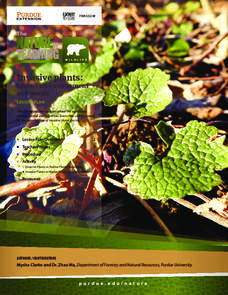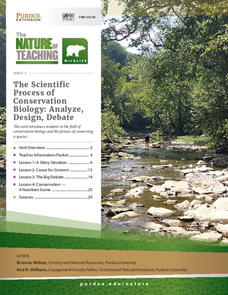DiscoverE
Everyday Engineering: Water Pollution Clean Up
Water, water, everywhere, but pollution is a major problem. Scholars design a filtration device or process that removes dirt and other particles from water. They use various household objects such as marbles, cotton balls, or coffee...
DiscoverE
DiscoverE Challenge: Pen Factory
Manufacture a great lesson on industrial manufacturing. A fun resource has learners use the production of pens to consider how assembly lines work. They write out a set of instructions for assembling a pen, test it out, then determine if...
National Science Teaching Association
Why Do We All Have to Stay Home?
Learners, especially young ones, might be confused about why or frustrated that we have to stay at home. Help answer questions and calm emotions with a nine-page resource that details topics regarding the COVID-19 pandemic.
Museum of Science
Solar Cooker
A warm, sunny day is perfect for eating great food and learning about science at the same time. Future engineers build solar cookers to prepare food using the Sun's rays. They learn how energy converts from solar energy to thermal energy.
Museum of Science
Wind Turbine
Let the energy blow. Using mostly easily found material such as PVC pipe and fans, pupils build wind turbines. Scholars connect a multimeter to an electric motor to determine the amount of energy generated by their designs. Learners then...
NASA
Providing Light for Your Plants
Using a guided lesson, pupils learn about what it takes to make a circuit along with a switch. They build a complete circuit under the direction from the teacher and identify each of the elements of the circuit. Scholars then learn to...
Teaching Tolerance
Puppet Show
It's a play, it's a story, it's a puppet show! A lively resource provides academics with a creative outlet to express their views on diversity and social justice. Scholars are responsible for writing, creating, and performing a puppet...
University of Waikato
Growing Soil Microbes
View how microbes grow in soil. Class members first create a Winogradsky column to grow bacteria. They then set up the column of mud in a plastic bottle and include a food source for the microbes and observe the column of mud over the...
Missouri Department of Elementary
Fly Your Kite
Encourage scholars to become a productive community member with a kite-themed lesson. Following a review and discussion, learners complete a Venn diagram that displays the connection between character traits needed to make a home and...
National Woman's History Museum
Getting with the Program
A seven-step instructional activity introduces the emergence of computer sciences and the contributions women made to the profession after World War II. Several science experiments offer pupils a hands-on learning experience that...
Purdue University
Eco-llapse
A balanced ecosystem doesn't mean balanced populations. Budding scientists complete a series of activities to learn about the relationship between producers and consumers in an ecosystem. They complete the wildlife conservation...
Purdue University
Mammals and Ecosystems
Mammals have unique interactions with their ecosystems. Using a multi-part lesson, learners research local mammals using recommended websites and use their findings to create their own paper ecosystems including appropriate mammals. They...
Purdue University
Ashes to Ashes: We All Grow Up
Ecosystems are constantly changing whether people notice or not. An inquiry-based lesson examines types of ecosystem changes and how they relate to wildlife conservation. Learners classify changes as succession and disturbance using a...
Purdue University
Reptiles, Amphibians, and the Scientific Method
What do a reptile and an amphibian have in common? A three-part lesson allows scholars to investigate the similarities and differences between the two types of animals by identifying specific body parts. The lesson highlights the...
Polk Bros Foundation
Chicago: Choices and Changes
Chicago, a city that is ever changing. A thought-provoking lesson, geared toward third-grade social studies, explains how the city of Chicago has changed over time. It discusses important leaders to the founding of the city, like Daniel...
Purdue University
What a Waste of Food!
Follow the life of an apple from harvest to the consumer. A three-part lesson describes the different steps to get an apple from the farmer to your kitchen and the approximate waste that happens at each step. They discuss the process and...
Purdue University
Food Waste Solutions
Easy doesn't always mean better. In an era with pre-packaged everything, learners consider the environmental impact of the convenient trend. They critique the packaging of food and how waste impacts cost and then look for solutions.
Purdue University
Food Waste and the Environment
Out of sight out of mind can be a dangerous habit. Learners investigate the life of food waste after it leaves people's homes and its impact on the environment. They complete a series of three activities that involve building a mini...
Purdue University
Trees of the Midwest
All trees are not created equal. A set of three wildlife conservation lessons has learners examine the characteristics of individual trees. They look at the life cycle of the tree using a story and reference a field guide to identify...
Purdue University
Take-a-Hike
Learn about nature and health all in one set of lessons. Individuals use a scavenger hunt to record observations during a nature hike. They then complete activities to categorize their observations and rate the health of the habitat for...
Purdue University
Invasive Plants: Impact on Environment and People
It's the attack of the invasive species! Young scientists simulate the behavior of an invasive species with a game-like activity. They assume the roles of native plants, invasive plants, and resources and watch the invasive plant takes...
Purdue University
The Scientific Process of Conservation Biology: Analyze, Design, Debate
Scientists use data to learn about species survival—and your classes can too! A set of four lessons guides learners through a process to draw conclusions about the fluctuations in the population of the Hellbender species. They read...
Purdue University
The Great Clearcut Controversy
Urban development and habitat retention are often at odds. A three-part lesson examines the pros and cons of forest clearcutting. Learners review data and characteristics of a specific mammal to make conclusions about the effect...
Purdue University
Common Indiana Mammals
Mammals all have their own story to tell. A set of 34 cards outlines the key characteristics of different mammals. The cards include images of each mammal as well as their skulls and tracks. The back of the cards describe characteristics...

























